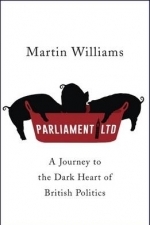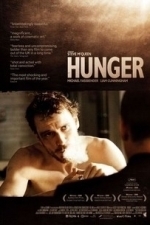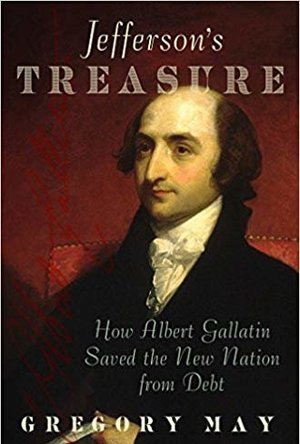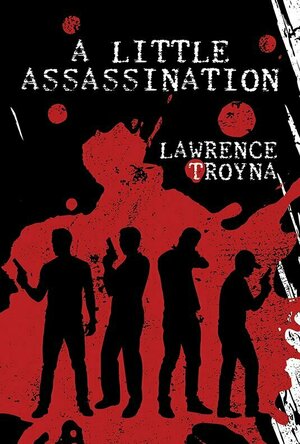Search
Search results
Merissa (13792 KP) created a post
May 3, 2021
Suswatibasu (1703 KP) rated Parliament Ltd: A Journey to the Dark Heart of British Politics in Books
Jul 24, 2017
Unbelievable, explosive, mind blowing claims
There were times where I literally gasped, laughed, clapped and whinced listening to this.
Exposing the dark heart of politics where morality has been swept away with the brush of business, Martin Williams has done an epic job of proportions revealing how intertwined the British government is with lobbyists, expenses scandals, external business interests with many even relating to human rights abuses. I would definitely want to hear an updated version reflecting the current government in power.
Bravo to Williams - an extremely important read for this generation.
Exposing the dark heart of politics where morality has been swept away with the brush of business, Martin Williams has done an epic job of proportions revealing how intertwined the British government is with lobbyists, expenses scandals, external business interests with many even relating to human rights abuses. I would definitely want to hear an updated version reflecting the current government in power.
Bravo to Williams - an extremely important read for this generation.
Alec Baldwin recommended Hunger (2009) in Movies (curated)
Sassy Brit (97 KP) rated Jefferson's Treasure: How Albert Gallatin Saved the New Nation from Debt in Books
Jun 5, 2019
Jefferson’s Treasure, by Gregory May, details, “how Albert Gallatin saved the new nation from debt.” Appointed by President Thomas Jefferson to be his Treasury Secretary, Gallatin continued under President Madison, maintaining that position for twelve years. During his tenure, he abolished internal revenue taxes in peacetime, slashed federal spending, and repaid half of the national debt.
So who was this man that undid Alexander Hamilton’s fiscal system, rejecting it along with Madison and Jefferson? Because both Presidents did not understand the financial system, they depended on Gallatin to reform it. Gallatin arrived in America in 1790 from Geneva and rose up to become a trusted advisor of the Republicans. Six years before Jefferson was elected President, Gallatin’s Pennsylvania neighbors rebelled against the tax on whiskey. He supported them in principle but opposed the violence that ensued, burning the local tax collector’s house, robbing the mail, and marching on Pittsburgh.
The play “Hamilton” uses revisionist history. The real Hamilton believed in big government and wanted to continue funding federal deficits. He based his theories on the British who used the money to fund their large military conflicts, believing that the ability to borrow endless amounts of money would allow the new United States to become a great nation. Jefferson and Madison thought Hamilton’s system, straight from the British way, was tainted with tyranny. As May noted, “It made the people pay obnoxious taxes in order to fund interest payments on a mounting federal debt and the costs of an expensive military establishment. It shifted money from ordinary taxpayers to the relatively few rich men who held the government’s bonds. That was just the sort of thing that had led Americans to revolt against Britain in the first place.”
May believes, “The hip-hop immigrant hero of the Broadway musical is a myth. The musical might be a great work of art, but is relies on misconceptions of Hamilton. He was not an immigrant, but a migrant within the British Empire. Also, he was not a man of the people, as Gallatin was, but an elitist.”
While Hamilton committed to paying only the interest on the government’s debt, Gallatin committed the government to repaying fixed amounts of the principal each year. He also insisted that the government should never spend more than it earned except in times of war. By slashing federal expenses, Gallatin was able to get rid of the tax on whiskey and abolish the entire internal revenue service.
The Republicans, an agrarian society, distrusted these elitists where two-thirds of the government debt belonged to a few hundred very wealthy men residing mainly in Philadelphia, New York, and other mercantile cities. They saw Hamilton’s plan of collecting taxes from ordinary citizens as a way for a few rich men to become even wealthier. Implementing these excise taxes required government officials to inspect, quantify, and mark the items subject to tax.
The Hamilton system benefited the wealthy debt holders and spectators at the expense of the average taxpayer who had to pay the interest. The government would borrow more than the people could pay. Hamilton tried to hide how much money the government was actually spending and spiraled the debt higher and higher.
This was an important part of the British tax base, and “I wanted to show how unpopular it was. Hamilton and company were resented because they created a tax collection network that affected the lives of ordinary citizens. The excise tax is a form of internal taxation, while tariffs are a form of external taxation that fell on the well to do. Remember mostly the well to do bought imports. The Republicans once they came to power relied on import duties rather than excise taxes.”
May further explained, “When Jefferson and his administration came to power it was Gallatin who got rid of Hamilton’s deficit finance system and cut taxes. By the time he has left office he has repaid half the federal debt and set up a program for repaying the rest.”
Anyone who wants to understand the early economic systems of the Founding Fathers will enjoy this book. It shows how Gallatin, by killing Hamilton’s financial system, abolished internal revenue taxes in peacetime, slashed federal spending, and repaid half of the national debt.
So who was this man that undid Alexander Hamilton’s fiscal system, rejecting it along with Madison and Jefferson? Because both Presidents did not understand the financial system, they depended on Gallatin to reform it. Gallatin arrived in America in 1790 from Geneva and rose up to become a trusted advisor of the Republicans. Six years before Jefferson was elected President, Gallatin’s Pennsylvania neighbors rebelled against the tax on whiskey. He supported them in principle but opposed the violence that ensued, burning the local tax collector’s house, robbing the mail, and marching on Pittsburgh.
The play “Hamilton” uses revisionist history. The real Hamilton believed in big government and wanted to continue funding federal deficits. He based his theories on the British who used the money to fund their large military conflicts, believing that the ability to borrow endless amounts of money would allow the new United States to become a great nation. Jefferson and Madison thought Hamilton’s system, straight from the British way, was tainted with tyranny. As May noted, “It made the people pay obnoxious taxes in order to fund interest payments on a mounting federal debt and the costs of an expensive military establishment. It shifted money from ordinary taxpayers to the relatively few rich men who held the government’s bonds. That was just the sort of thing that had led Americans to revolt against Britain in the first place.”
May believes, “The hip-hop immigrant hero of the Broadway musical is a myth. The musical might be a great work of art, but is relies on misconceptions of Hamilton. He was not an immigrant, but a migrant within the British Empire. Also, he was not a man of the people, as Gallatin was, but an elitist.”
While Hamilton committed to paying only the interest on the government’s debt, Gallatin committed the government to repaying fixed amounts of the principal each year. He also insisted that the government should never spend more than it earned except in times of war. By slashing federal expenses, Gallatin was able to get rid of the tax on whiskey and abolish the entire internal revenue service.
The Republicans, an agrarian society, distrusted these elitists where two-thirds of the government debt belonged to a few hundred very wealthy men residing mainly in Philadelphia, New York, and other mercantile cities. They saw Hamilton’s plan of collecting taxes from ordinary citizens as a way for a few rich men to become even wealthier. Implementing these excise taxes required government officials to inspect, quantify, and mark the items subject to tax.
The Hamilton system benefited the wealthy debt holders and spectators at the expense of the average taxpayer who had to pay the interest. The government would borrow more than the people could pay. Hamilton tried to hide how much money the government was actually spending and spiraled the debt higher and higher.
This was an important part of the British tax base, and “I wanted to show how unpopular it was. Hamilton and company were resented because they created a tax collection network that affected the lives of ordinary citizens. The excise tax is a form of internal taxation, while tariffs are a form of external taxation that fell on the well to do. Remember mostly the well to do bought imports. The Republicans once they came to power relied on import duties rather than excise taxes.”
May further explained, “When Jefferson and his administration came to power it was Gallatin who got rid of Hamilton’s deficit finance system and cut taxes. By the time he has left office he has repaid half the federal debt and set up a program for repaying the rest.”
Anyone who wants to understand the early economic systems of the Founding Fathers will enjoy this book. It shows how Gallatin, by killing Hamilton’s financial system, abolished internal revenue taxes in peacetime, slashed federal spending, and repaid half of the national debt.
Night Reader Reviews (683 KP) rated A Little Assassination in Books
Feb 29, 2020
Honest Review for Free Copy of Book
A Little Assassination by Lawrence Troyna follows the story of what happens when two assassins are hired to get rid of each other. Too bad it is largely the result of a misunderstanding.
Nero is an assassin who is employed by the British government through a program that is nonexistent. Frequently his job is to remove people who could cause embarrassment to the British government. A sort of lasting damage control so to speak. Unfortunately, no matter how carefully Nero plans his jobs sometimes they go wrong . Usually, that just means a few unintended people get caught in the crossfire, but not this time.
Leon is an assassin as well, but unlike Nero, he works for a crime family. His jobs are usually fairly similar to Nero’s except he doesn't secretly work for the government. This time when Leon is called in his order is to eliminate anyone responsible for the bomb that went off inside one of the family’s drug manufacturing plants. When it is discovered that the plant was accidental collateral damage from a British government hit Leon is supposed to be called off. When this does not happen Leon and Nero’s groups end up fighting head to head for a short while until Leon gives up by his group completely. Now it's an all-out manhunt, but the prey is also a hunter.
Honestly, I am not sure what to say. There really wasn’t much that stood out to me about this book. The most surprising (and in this case the best) part of the book was finding out who the leak on Nero’s side was. There were multiple things about this book that I didn’t like. There was a Mr. Tillotson and a Mr. Trenchard on opposite sides, which was mildly confusing. I was also surprised to find that the plot moves steadily yet to me it still seamed dragging.
The language can be a little rough and (as one would expect from a book about assassins) there is a lot of violence. With that being said the book is best suited for young adults and adults alike. I rate this book 1 out of 4. I had much higher hopes for this book than what it delivered. It was fairly dry and predictable. There really wasn’t much about this book that impressed me aside from who the leak was.
https://www.facebook.com/nightreaderreviews/
https://smashbomb.com/nightreader
https://nightreaderreviews.blogspot.com/
Nero is an assassin who is employed by the British government through a program that is nonexistent. Frequently his job is to remove people who could cause embarrassment to the British government. A sort of lasting damage control so to speak. Unfortunately, no matter how carefully Nero plans his jobs sometimes they go wrong . Usually, that just means a few unintended people get caught in the crossfire, but not this time.
Leon is an assassin as well, but unlike Nero, he works for a crime family. His jobs are usually fairly similar to Nero’s except he doesn't secretly work for the government. This time when Leon is called in his order is to eliminate anyone responsible for the bomb that went off inside one of the family’s drug manufacturing plants. When it is discovered that the plant was accidental collateral damage from a British government hit Leon is supposed to be called off. When this does not happen Leon and Nero’s groups end up fighting head to head for a short while until Leon gives up by his group completely. Now it's an all-out manhunt, but the prey is also a hunter.
Honestly, I am not sure what to say. There really wasn’t much that stood out to me about this book. The most surprising (and in this case the best) part of the book was finding out who the leak on Nero’s side was. There were multiple things about this book that I didn’t like. There was a Mr. Tillotson and a Mr. Trenchard on opposite sides, which was mildly confusing. I was also surprised to find that the plot moves steadily yet to me it still seamed dragging.
The language can be a little rough and (as one would expect from a book about assassins) there is a lot of violence. With that being said the book is best suited for young adults and adults alike. I rate this book 1 out of 4. I had much higher hopes for this book than what it delivered. It was fairly dry and predictable. There really wasn’t much about this book that impressed me aside from who the leak was.
https://www.facebook.com/nightreaderreviews/
https://smashbomb.com/nightreader
https://nightreaderreviews.blogspot.com/
Awix (3310 KP) rated Official Secrets (2019) in Movies
Oct 18, 2019
Superior based-on-fact thriller with Keira Knightley leading a strong cast. Huge demonstrations fill the streets of London but are totally ignored by the government, the British Prime Minister is a smirking liar, and the US administration is hugely embarrassed by a whistleblower. How very different things were 15 years ago. Said whistleblower (Knightley) reveals an attempt by the US and UK to blackmail members of the UN security council into authorising an otherwise-illegal invasion of Iraq, bringing the whole power of the establishment down on her head.
There's a lot going on here, plotwise, with various strands following Knightley's personal situation, the attempts of journalists to verify and publish her story, and the court case that ensued, but the story is always engrossing and never difficult to follow. Knightley's performance is possibly a little overcooked, but she is extremely well supported by a cast including Matt Smith, Ralph Fiennes, and Rhys Ifans. Raises some serious issues about the rights of a government to keep secrets from its secrets; stirs up some recent history, too, for what it's worth. An excellent piece of intelligent entertainment.
There's a lot going on here, plotwise, with various strands following Knightley's personal situation, the attempts of journalists to verify and publish her story, and the court case that ensued, but the story is always engrossing and never difficult to follow. Knightley's performance is possibly a little overcooked, but she is extremely well supported by a cast including Matt Smith, Ralph Fiennes, and Rhys Ifans. Raises some serious issues about the rights of a government to keep secrets from its secrets; stirs up some recent history, too, for what it's worth. An excellent piece of intelligent entertainment.
Suswatibasu (1703 KP) rated Our Man in Havana: An Introduction by Christopher Hitchens in Books
Sep 8, 2017
A classic noir from Graham Greene but not his best
While I wouldn't say this was the best of Graham Greene, who is renowned for his noir style crime tales, it was an enjoyable read.
There are plenty of twists and turns in this spy novel about a simple vacuum merchant turned spy for the British government in Cuba. His friend, a German doctor is suspected of being more than he is. There are plenty of assassination plots in this novel on top of escaping dangerous situations involving corrupt cops.
My only gripe is the fact how quickly the salesman was able to grasp being a detective without any training, so it seems a little implausible. Fun, but no Brighton Rock.
There are plenty of twists and turns in this spy novel about a simple vacuum merchant turned spy for the British government in Cuba. His friend, a German doctor is suspected of being more than he is. There are plenty of assassination plots in this novel on top of escaping dangerous situations involving corrupt cops.
My only gripe is the fact how quickly the salesman was able to grasp being a detective without any training, so it seems a little implausible. Fun, but no Brighton Rock.
Darren (1599 KP) rated A United Kingdom (2017) in Movies
Jun 20, 2019
Story: A Untied Kingdom starts in 1947 England where Prince Seretse Khama (Oyelowo) of Bechuanaland (known today as Botswana) is in England studying law, he meets file clerk Ruth Williams (Pike) and the two fall in love.
With tension between Bechuanaland and South Africa high the idea of the soon to be King marrying a white woman would be unheard off. The British government doesn’t want him to become king and Seretse own family don’t want him to become king if he stays with Ruth. With the racial divide still going strong, Seretse pushed for equality over anything else, so he can unite his kingdom when he becomes king.
Thoughts on A United Kingdom
Characters – Seretse Khama is the prince of Bechuanaland he has been studying law in England to prepare for his time as king, he falls in love a white woman in Ruth Williams which throws tensions from his family, government in the air and to prove his love is more important than his traditions and bring the equality between the races together. Ruth Williams is an English clerk whose family has been working to teach Christianity to Africans, she meets and falls in love with Seretse and goes against everyone else’s desires and marries him. Rufus Lancaster is the British liaison in Bechuanaland who leads the opposition from the land, which only shows us just how the English were over controlling.
Performances – David Oyelowo is wonderful in the leading role, showing us once again that he can lead any movie he wants too. Rosamund Pike shines to showing everyone that she can handle to calm roles after the psycho ones in Gone Girl. The rest of the cast are wonderful even if the British characters are as stuck up as you would imagine them to be.
Story – The story follows the lives of King Seretse who marries an English white woman which puts the balance between the racial tension in his home land and British rule. We learn a lot from this movie, because we see how the country was being controlled from outside forces that only saw them as a piece of land. There is a lot to take in and the history lesson about this union that created a chance in the land.
Biopic/Romance – What King Seretse and his wife Ruth achieved for Botswana was incredible and this shows us how their love drove them to achieve this change.
Settings – The settings show us the high society British look at an African country that was following its own traditions to become the independent from this style of rule.
Scene of the Movie – Speech to the ‘tribe’ as the British called them.
That Moment That Annoyed Me – Knowing the English were this shallow.
Final Thoughts – This is a good look at how the world was once ruled by people who believe they are in the right to control countries affairs and how their union would change everything.
Overall: History is always worth learning.
https://moviesreview101.com/2019/05/21/abc-film-challenge-biopics-u-a-united-kingdom-2016/
With tension between Bechuanaland and South Africa high the idea of the soon to be King marrying a white woman would be unheard off. The British government doesn’t want him to become king and Seretse own family don’t want him to become king if he stays with Ruth. With the racial divide still going strong, Seretse pushed for equality over anything else, so he can unite his kingdom when he becomes king.
Thoughts on A United Kingdom
Characters – Seretse Khama is the prince of Bechuanaland he has been studying law in England to prepare for his time as king, he falls in love a white woman in Ruth Williams which throws tensions from his family, government in the air and to prove his love is more important than his traditions and bring the equality between the races together. Ruth Williams is an English clerk whose family has been working to teach Christianity to Africans, she meets and falls in love with Seretse and goes against everyone else’s desires and marries him. Rufus Lancaster is the British liaison in Bechuanaland who leads the opposition from the land, which only shows us just how the English were over controlling.
Performances – David Oyelowo is wonderful in the leading role, showing us once again that he can lead any movie he wants too. Rosamund Pike shines to showing everyone that she can handle to calm roles after the psycho ones in Gone Girl. The rest of the cast are wonderful even if the British characters are as stuck up as you would imagine them to be.
Story – The story follows the lives of King Seretse who marries an English white woman which puts the balance between the racial tension in his home land and British rule. We learn a lot from this movie, because we see how the country was being controlled from outside forces that only saw them as a piece of land. There is a lot to take in and the history lesson about this union that created a chance in the land.
Biopic/Romance – What King Seretse and his wife Ruth achieved for Botswana was incredible and this shows us how their love drove them to achieve this change.
Settings – The settings show us the high society British look at an African country that was following its own traditions to become the independent from this style of rule.
Scene of the Movie – Speech to the ‘tribe’ as the British called them.
That Moment That Annoyed Me – Knowing the English were this shallow.
Final Thoughts – This is a good look at how the world was once ruled by people who believe they are in the right to control countries affairs and how their union would change everything.
Overall: History is always worth learning.
https://moviesreview101.com/2019/05/21/abc-film-challenge-biopics-u-a-united-kingdom-2016/
Entry number 7 (of 9) in Donald Jacks Bartholomew Bandy series (Canadian First World War air ace), set - this time - in India, in the mid 1920s (1925, to be precise).
Having - inadvertently - previously saved the life of Prince Khoosie of the state of Jhamjarh, this novel starts with Bandy travelling to that continent to help them set up their own air force: an air force that is viewed with some misgivings by the (British) powers-that-be, who are convinced that it will be used against them and who refuse to heed any warnings about an uprising that is planned by another Indian state, even going so far as to take their side against Jhamjarh.
As things turn out, of course, the British government have it all backwards …
As I've said before, I found the quality of these novels to have declined in direct proportion to their settings: for my money, the earlier books (set during and just after WW1) are far superior to these later instalments. Having said that, I did find this one to be more enjoyable than its immediate predecessor, with a few laugh-out-loud moments and a further insight into just how Bandy's First World War experiences have affected him
Having - inadvertently - previously saved the life of Prince Khoosie of the state of Jhamjarh, this novel starts with Bandy travelling to that continent to help them set up their own air force: an air force that is viewed with some misgivings by the (British) powers-that-be, who are convinced that it will be used against them and who refuse to heed any warnings about an uprising that is planned by another Indian state, even going so far as to take their side against Jhamjarh.
As things turn out, of course, the British government have it all backwards …
As I've said before, I found the quality of these novels to have declined in direct proportion to their settings: for my money, the earlier books (set during and just after WW1) are far superior to these later instalments. Having said that, I did find this one to be more enjoyable than its immediate predecessor, with a few laugh-out-loud moments and a further insight into just how Bandy's First World War experiences have affected him
Adam Colclough (3 KP) rated Harry's Game in Books
Mar 6, 2018
Dangerous Games
London at the height of the IRA’s campaign on the British mainland and a government minister is assassinated, orders are send down from the highest level that retaliatory action must be taken. Gerald Seymour’s ground breaking 1975 novel tells the story of the resulting operation, in which a British agent is sent undercover in Republican Belfast.
For the most part thrillers are the literary equivalent of Danish pastry, enjoyable but not made to last. A few, and ‘Harry’s Game’ is one, are more substantial fare, food for the mind that may give you indigestion.
On one level it is a book in the tradition established by Frederick Forsythe, fiction played out as fact allowing the author to draw on his journalistic background. Seymour goes beyond this by creating characters who aren’t simply stock heroes and villains. Instead they are human beings engaged in a struggle that is squalid and futile rather than heroic and purposeful.
This combines to give a grimly believable picture of daily life in Northern Ireland at a time when a single word or action out of place could have deadly consequences. He also writes well about the machinations behind the scenes on both sides, with the British political and military establishment struggling to fight an undeclared war they don’t understand; and the IRA high command masking the brutality of their actions behind misty eyed romanticism.
Brutal, believable and still relevant more than forty years after it was first published this is a novel that is very much worth reading, even if doing so can be unsettling.
For the most part thrillers are the literary equivalent of Danish pastry, enjoyable but not made to last. A few, and ‘Harry’s Game’ is one, are more substantial fare, food for the mind that may give you indigestion.
On one level it is a book in the tradition established by Frederick Forsythe, fiction played out as fact allowing the author to draw on his journalistic background. Seymour goes beyond this by creating characters who aren’t simply stock heroes and villains. Instead they are human beings engaged in a struggle that is squalid and futile rather than heroic and purposeful.
This combines to give a grimly believable picture of daily life in Northern Ireland at a time when a single word or action out of place could have deadly consequences. He also writes well about the machinations behind the scenes on both sides, with the British political and military establishment struggling to fight an undeclared war they don’t understand; and the IRA high command masking the brutality of their actions behind misty eyed romanticism.
Brutal, believable and still relevant more than forty years after it was first published this is a novel that is very much worth reading, even if doing so can be unsettling.







